Court recordings should be available same day to clients. AN ONGOING media investigation into hearings in Scotland’s top court – the Court of Session – has received evidence which casts doubt on the integrity of witnesses and counsel’s actions – which could be remedied if unedited digital audio recordings were required to be provided to clients involved in cases – upon the conclusion of a hearing.
Audio recordings of hearings in a £6million land case Nolan v Advance Construction (Scotland) provided by a court source – and a study of their content have led to calls for clients who already pay tens of thousands of pounds for their claims to be hard by the Court of Session – to be given unrestricted access to audio records of proceedings in court – without obstruction or prohibitive cost being used to block access to proceedings in their case.
In the case which features in the released audio – extraordinary exchanges between counsel, witnesses and the judge – Lord Woolman – can be clearly heard and further exchanges were counsel take an unrealistic, if combative approach with local planning officials in attempts to conceal or contradict legislation relating to the dumping of toxic, hazardous waste from the court.
In the cassette tapes of the Court of Session hearings – obtained by journalists from court sources – the audio recordings of interactions between witnesses, John Campbell QC, and the current Dean of the Faculty of Advocates – Roddy Dunlop QC – has since led to a separate investigation which has discovered one of the chief witnesses in Nolan v Advance held compromising interests linked to the defenders – which were concealed from the court and the judge – Lord Woolman.
In one exchange, Dunlop questions a North Lanarkshire Council planning officer – Mr Fraser Miller – on the conditions and legislation which are required for the removal of hazardous material including asbestos. From the recordings and what happened in court, it becomes clear the planning officer says planning permission would be required to remove the asbestos from the site, and the same permission would be required fo the asbestos to be dumped on the site.
As the case proceeds over a number of days in August 2013 before Lord Woolman – Dunlop’s client – Advance Construction (Scotland) Ltd – are ultimately forced to admit to Lord Woolman they were responsible for illegally dumping the toxic material on Mr Nolan’s property.
The audio tapes of the Nolan v Advance hearings go on to reveal many discrepancies between the accounts of what John Campbell QC said to his own client, and what actually transpired in court – including the as yet unexplained reasons why Campbell QC removed much of his own client’s financial claims – and critically the claim for legal expenses – without receiving any instruction to do so.
While it is important to note this case was initially won by Mr Nolan – the pursuer – the failure of counsel to return to court for legal expenses against the defender led to financial loss & disaster after counsel for the pursuer turned on his own client by inexplicably stripping out much of the financial claim – an act which Lord Woolman said he had never seen in such a case.
A full report on how John Campbell QC reduced his own client’s financial claim almost to zero and without any instruction or consultation – can be found here: CASHBACK QC: Legal regulator’s files reveal senior QC reduced claim without instructions, withheld key evidence & witnesses including Cabinet Secretary from Court of Session case
Readers may be familiar with Nolan v Advance – one of the most extraordinary cases in recent times – which has since led to the discovery of carefully concealed interests of Court of Session judge Lord Malcolm (Colin Campbell QC) and Scotland’s current top judge – Lord Carloway (Colin Sutherland).
During a consultation between journalists currently engaged in the probe and court sources, further issues in the Nolan v Advance case have now come to light including a source which identified a comment between counsel to the effect of an unreferenced instruction with some degree of motivation – which states “you have got to four o’clock to get this sorted”.
And now – further audio recordings have been provided to journalists which lay down in crystal clear terms an extraordinary attitude on payment of fees on the part of the pursuer’s legal team – which included John Campbell QC, advocate Craig Murray and solicitor Gregor McPhail.
The legal team for Mr Nolan had previously signed up to a no win no fee agreement – which Campbell admits to in the recordings.
However, and without hesitation Campbell then appears to turn against the fee deal and demands his team all be paid – this coming after further material and already published emails revealed John Campbell demanded, and insisted on collecting in person – cash sums of up to five thousand pounds at a time from his client Mr Nolan.
In one exchange – Campbell QC says “As fond as I am of you, none of us are doing this for love and neither is Craig [Murray]”
Campbell is then challenged over his already agreed position of working on the case via a no win no fee deal
John Campbell agrees he was working on a no win no fee deal but then replies: “That is correct, hmmm but we just have to see whether that actually holds up because hmm you know…”
A number of further recordings are now being studied where it is acknowledged by counsel Lord Woolman states he is concerned about counsel’s lack of provision to the judge of evidence given by certain witnesses for the pursuer, Mr Nolan.
In an additional audio provided to journalists, John Campbell QC – who now heads the Edinburgh based Quaich Project – clearly admits responsibility for key failures in his presentation of evidence to the court.
Journalists and technical experts are now considering the content of the court recordings for futher publication and potential inclusion in reports to the Scottish Parliament’s Justice Committee of events in the Nolan v Advance case which identify a pattern of deliberate and concealed conflicts of interest by judges in the Court of Session.
And – in another court case where recordings have also come to light, it is also very clear what happens in court is very loosely transcribed to parties when there are requests by court participants for transcripts – some costing clients tens of thousands of pounds over hearing after hearing.
In a further case presented to the media team looking into Court of Session audio recordings – a court source has come forward with claims that a transcribing firm who were given court recordings as part of an order for transcripts – were told in a phone call to go easy on certain dates across hearings in one major case – and pay less emphasis to one side’s counsel in their provision of a final transcript ordered by the other side’s legal team.
A legal insider who has been given access to some of the audio material handed over to journalists now believes clients should be given unfettered access to recordings of their cases in court.
He said: “Clients pay a lot of money for their legal representatives to take a case through to the Court of Session and should be provided with audio recordings of each day’s proceedings at the end of that day”
He added: “The equipment to record court hearings has been installed for some time, and this should be properly used to ensure clients on both sides of the court have access to these recordings, without any attempt by court staff or the sitting judge to use unsatisfactory excuses or prohibitive costs as a reason for withholding audio access to those who are paying for the hearings.”
Currently, clients can request a copy of recordings from the Court of Session to be transcribed by an external private company, however – seldom if ever do the actual audio recordings pass into the hands of clients or either side’s legal team.
Clients must pay for the transcribing of the court recordings in what can run into bills of tens of thousands of pounds, however – there are notes of many cases where court staff, and the judge have blocked a client’s request to obtain transcripts of proceedings – and even when the court has agreed to transcription in some cases – clients and legal teams have identified multiple omissions in transcripts which suggest a motivated approach was taken to omit particular evidence from print.
For the media, a different approach to recording and broadcasting from the Court of Session & High Court of Justiciary currently exists in the following format:
Protocol on Recording and Broadcasting of Proceedings in the High Court of Justiciary and the Court of Session, and the Use of Live Text Based Communications from Court
Broadcast: Except where the context otherwise requires, for the purposes of the Protocol,
“broadcast” means the transmission to members of the public of a video and/or audio recording; or live streaming. For the purposes of the Protocol, a recording refers to a video and/or audio recording. Broadcast may be for live streaming, news broadcast or documentary production. Individual sections within the Protocol identify the extent to which broadcasting may be permitted for a particular type of case.
Guiding Principle: The guiding principle is that broadcast of court proceedings is in the interests of open justice and for the information and education of the public.
Judicial Control: Subject to the guiding principle, whether a hearing should be recorded must remain under judicial control. The court may rule that, in any given case, recording a hearing would not be in the interests of justice.
Fair and Accurate Reporting: A report or presentation of proceedings that includes a broadcast of a hearing must be fair and accurate, having regard to the overall content of the report or presentation and the context in which the broadcast is presented. It must not be used for: the purposes of a party political broadcast; advertisement or promotion (except where such advertisement or promotion relates to a report or presentation that includes the broadcast); light entertainment; comedy or satirical purposes.
For the purposes of the Protocol, a media party means a journalist registered with the Scottish Courts and Tribunals Service (SCTS), or a party who can provide sufficient, appropriate evidence of relevant journalistic or documentary work. Any media party wishing to record a hearing is required to submit an application using one of the prescribed forms
Applications must be submitted to Judicial Communications for consideration by the Broadcast Working Group well in advance of the date of commencement of proceedings.
On receipt of an application, the Broadcast Working Group must notify the residing/chairing judge and ask him, or her, to provide to the Broadcast Working Group any comment or response which he, or she, may have on the application within an agreed time. Once the Broadcast Working Group has considered any such comment or response, it must make a recommendation to the Lord Justice General (or Lord Justice Clerk) as to whether the application ought to be approved. The final decision lies with the Lord Justice General or, in the absence of the Lord Justice General, with the Lord Justice Clerk. Approval may permit recording to take place in accordance with sections 2 to 5, or in accordance with any additional conditions as may be specified.
A decision on the application must be intimated to the media party within an agreed time. In the event of an application being refused, in whole or part, written reasons must be provided by the Broadcast Working Group.
In the event of an application being refused, in whole or part, the media party may submit an amended application taking into account the reasons for refusal.
If permission to record is granted, the Broadcast Working Group must appoint an SCTS staff member as a liaison officer. That officer is the point of contact between the media party and the court for all purposes connected with the recording.
If permission to record proceedings is granted, the presiding/chairing judge retains responsibility for ensuring that: the grant of permission remains appropriate; the recording is carried out on the terms approved by the Broadcast Working Group; and the recording is carried out in a way which does not disrupt court business. If, at any stage in the proceedings, the judge forms the view that to proceed with the recording would constitute a threat to the administration of justice, or that such a risk is present, or that the media party has breached the Protocol or any condition imposed, the presiding/chairing judge may withdraw the permission. If the presiding/chairing judge is considering withdrawing permission, an opportunity should be afforded to the media party to make representations to the judge before a final decision is reached.
Despite the progress of technology in the world outside of Scotland’s creaky Victorian courts and justice system, recording and broadcasting of what goes on in Scotland’s courts has not yet had the full impact on increasing transparency and accountability in the justice system which the same application of audio and video technology have had in courts in other jurisdictions.
Currently, the media must rely on a ‘judge-led’ review chaired by Lady Dorrian – who was appointed to chair it by Lord Brian Gill, Scotland’s former Lord President and Lord Justice General who famously liked to go after the media and block access to courts and documents during his short three year term as Lord President in which he continually held the media, and transparency in disdain.
Report of the Review of Policy on Recording and Broadcasting of Proceedings in Court, and Use of Live Text-Based Communications
A judge-led group which was appointed by the Lord President to review the current policy on the recording and broadcasting of proceedings and the use of live text-based communications from Scottish courts has published its report.
The review group, chaired by Lady Dorrian, has made a series of recommendations following a public consultation exercise, to which 17 individuals and organisations responded.
The review, which examined the existing practice in Scotland and other jurisdictions, was carried out in the context of a complete acceptance of the importance of the principle of open justice, recognising however that any steps taken in support of this principle must not pose any risk to the administration of justice.
In summary, the report recommends the following:
-
Filming of civil and criminal appeals, and legal debates in civil first instance proceedings, such as judicial review or procedure roll hearings, should be allowed for live transmission. Subsequent news broadcasting and documentary film-making should be allowed subject to clear and comprehensive guidelines.
-
The court should allow criminal trials to be filmed for documentary purposes in certain circumstances, subject to the safeguards referred to in the report. Cases involving children, sexual offences and vulnerable witnesses should not be filmed.
-
No live transmission or filming for subsequent news broadcast should be allowed for criminal first instance business or for civil proceedings involving witnesses.
-
For subsequent news broadcasts, the delivery of sentencing remarks of the judge should be permissible, with filming focused only on the sentencing judge.
-
Filming of criminal trials for live transmission should not be allowed.
-
In civil cases at first instance, filming for documentary purposes only should be allowed, but should exclude certain groups such as family cases and those involving asylum seekers.
-
A structured approach to considering applications to film.
-
All filming should be subject to robust, clear and comprehensive guidelines.
-
Journalists who register in advance with the Scottish Court Service should be permitted the use of live text-based communications such as Twitter from court, subject to guidelines which will be issued in due course.
The Lord President, Lord Gill said: “I am grateful to Lady Dorrian and her group for having carried out this exercise so thoroughly. These well-considered recommendations have the support of the judges. I accept all of the recommendations. They are entirely appropriate in the contemporary world. My office will now prepare guidance on the implementation of Lady Dorrian’s report.”
On 18 October 2012, the Lord President, Lord Gill, appointed a judicially led media review group, whose remit was to review policy on the recording and broadcasting of proceedings in court. This was later extended to include consideration of the use of live, text-based communications (LTBC) from court.
Guidance on the conditions under which cameras could be allowed in court was previously contained in a practice note issued by Lord President Hope in 1992. These conditions were revised by Lord President Hamilton in 2012. The revised conditions allowed filming to take place without the consent of all parties involved. The production company and broadcaster had to provide an undertaking to the presiding judge that the final broadcast would not identify those who had not consented to the filming.
The passage of time since guidance was issued, together with the development of social media, the use of instant text-based communication and the broadcasting of proceedings before the UK Supreme Court have all contributed towards a need to review this matter. When filming for documentary purposes has taken place in Scotland, the guidelines have had to be complemented by detailed negotiations as to the precise terms in each case. In appointing this review group, the Lord President considered that a more structured approach was desirable, not least in the interests of consistency.
The review was chaired by Lady Dorrian. The other members were: Lord Bracadale, Lord Woolman, Sheriff Principal Stephen, and Sheriff Drummond. The group was supported by: Christopher Nicholson, Deputy Legal Secretary to the Lord President; Elizabeth Cutting, Head of Judicial Communications; Steven D’Arcy, Head of Strategy and Governance, Judicial Office for Scotland.




















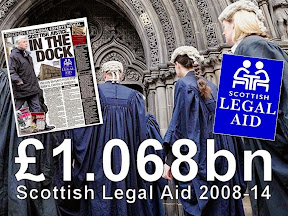
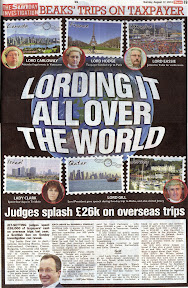


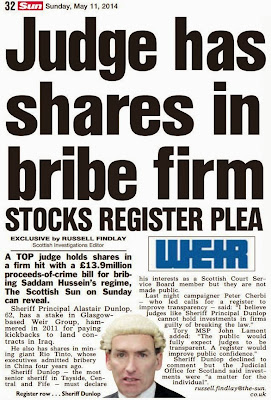











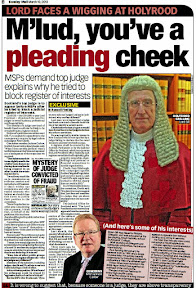
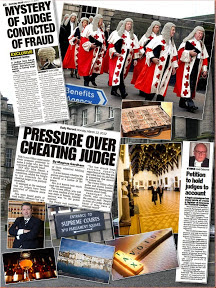
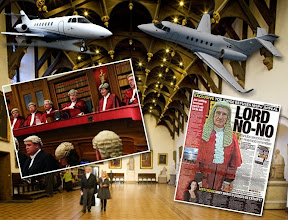


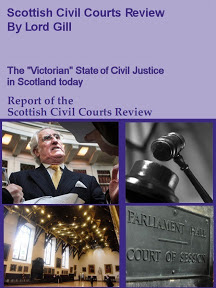
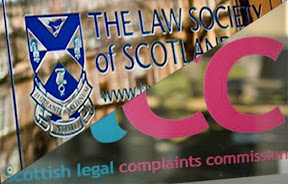



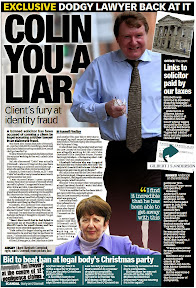
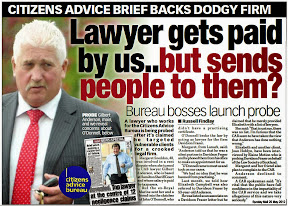



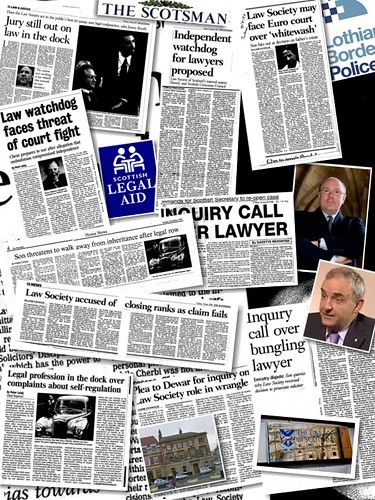




You must be logged in to post a comment.